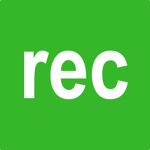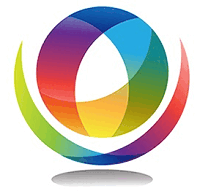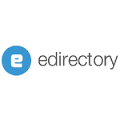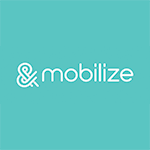Description

Eventcube

RecDesk
Comprehensive Overview: Eventcube vs RecDesk
Eventcube and RecDesk are both software solutions designed to help organizations manage various aspects of their operations, albeit with different focuses and target markets. Here's an overview of each:
Eventcube
a) Primary Functions and Target Markets:
-
Primary Functions: Eventcube is primarily an event management platform. It offers tools for ticketing, membership management, live-streaming capabilities, and event monetization. Event organizers can use Eventcube to handle ticket sales, create customizable event pages, manage payments, and track attendee engagement.
-
Target Markets: The software targets businesses and organizations that host events, including concerts, festivals, conferences, and sports events. Its clients range from small independent event organizers to large venues and entertainment companies.
b) Market Share and User Base:
- Market Share and User Base: Eventcube serves a niche segment in the event management industry. While specific market share data can be challenging to quantify due to the competitive landscape, Eventcube typically appeals to those seeking a cost-effective and customizable alternative to larger players like Eventbrite or Cvent. Its user base includes innovative businesses that value flexibility and robust feature sets for hosting various event types.
c) Key Differentiating Factors:
- Customizability: Eventcube stands out with its white-label solutions that allow organizers to maintain branding control.
- Monetization Options: Features like integrated payment gateways, merchandise sales, and various monetization options provide additional revenue streams for events.
- Flexibility and Modular Design: Users can take advantage of its modular design, which means they only pay for the features they need.
RecDesk
a) Primary Functions and Target Markets:
-
Primary Functions: RecDesk is a comprehensive recreation management software. It provides tools for activity scheduling, facility booking, membership management, and online registration. Additionally, it includes financial reporting and communication features to streamline operations for recreational departments.
-
Target Markets: RecDesk primarily serves municipal parks and recreation departments, community centers, camps, and nonprofit organizations involved in recreational program delivery. Its focus is on agencies looking to streamline their processes and improve community engagement.
b) Market Share and User Base:
- Market Share and User Base: RecDesk is a significant player in the recreation management software market. It is widely adopted by small to medium-sized municipal organizations in North America. While not the largest in the sector, it is well-regarded for its user-friendly interface and tailored approach to recreation management.
c) Key Differentiating Factors:
- Tailored for Recreation: Unlike more general event management tools, RecDesk is tailored specifically for the needs of recreational activities and community service programs.
- Community Engagement: The software places a strong emphasis on member engagement and communication, helping organizations foster a stronger connection with their community.
- Ease of Use: Known for its intuitive user interface, RecDesk is accessible for a broad range of users, including those with limited technical expertise.
Comparing Eventcube and RecDesk
- Focus and Application: Eventcube is more focused on event-centric services, while RecDesk is centered around recreational and community activity management.
- Target Market: Eventcube caters mainly to event organizers and entertainment providers. In contrast, RecDesk is geared towards municipal recreation departments and community-focused organizations.
- Feature Sets: Eventcube offers advanced event monetization and customization features, whereas RecDesk focuses on simplifying community program management and keeping residents engaged.
Overall, both platforms are tailored to their specific niches, providing essential services that cater to the distinct needs of their respective target markets. Event organizers and recreation managers would choose between them based on their particular feature needs and the industry they operate within.
Contact Info

Year founded :
2013
+44 77 1022 7278
Not Available
United Kingdom
http://www.linkedin.com/company/eventcube-solutions

Year founded :
Not Available
Not Available
Not Available
Not Available
Not Available
Feature Similarity Breakdown: Eventcube, RecDesk
To provide a comprehensive feature similarity breakdown for Eventcube and RecDesk, we will look at their core features, compare their user interfaces, and identify any unique features that distinguish one product from the other.
a) Core Features in Common
Both Eventcube and RecDesk offer several core features aimed at helping organizations manage events and community services efficiently. Here are some commonalities:
-
Event Management: Both platforms provide tools for organizing and managing events, including event creation, scheduling, and registration management.
-
Payment Processing: They offer integrated payment processing solutions to facilitate transactions such as ticket sales or membership fees.
-
Membership Management: Each has capabilities for managing memberships, including plans, renewals, and member profiles.
-
Reporting and Analytics: Both provide reporting features that allow users to track attendance, revenue, and other important metrics.
-
Customizable Registration Forms: Users can create and customize registration forms according to the needs of their events or programs.
b) User Interface Comparison
-
Eventcube:
- Design: Eventcube’s interface is designed with a focus on events, ticketing, and monetization, creating a streamlined experience for event planners and businesses.
- Navigation: It often features a clear and modern aesthetic with intuitive navigation, catering to users who need quick access to event details, financials, and attendee management.
-
RecDesk:
- Design: RecDesk tends to focus more on community and recreation management, making its interface slightly more community-centric.
- Navigation: Its design and navigation are usually focused on being user-friendly for community centers, parks, and recreation departments, emphasizing ease of use for a broad range of users like administrators, instructors, and participants.
c) Unique Features
-
Eventcube:
- White-Label Solutions: Eventcube provides white-label solutions, allowing users to customize the interface to match their brand identity, which can be particularly beneficial for businesses wanting to maintain brand consistency.
- Virtual Event Support: It offers comprehensive tools for managing virtual events, including live streaming and integrations with virtual meeting platforms.
-
RecDesk:
- Facility Management: A standout feature of RecDesk is its robust facility management module, which allows users to manage bookings, availability, and usage of community facilities like halls, courts, and fields.
- Community Program Management: It is tailored for managing community programs and activities more efficiently, providing specialized tools for scheduling and enrolling participants in community services.
In summary, while both Eventcube and RecDesk share similar core features related to event and membership management, they each have unique offerings that cater to different types of users. Eventcube is particularly strong in its event monetization and brand customization capabilities, whereas RecDesk excels in community resource management and ease of use for public service entities.
Features

Not Available

Not Available
Best Fit Use Cases: Eventcube, RecDesk
Eventcube:
a) Best Fit Use Cases for Eventcube:
Eventcube is a comprehensive platform that offers solutions for event ticketing, membership management, and virtual events. It is ideally suited for the following types of businesses or projects:
- Event Organizers and Promoters: Companies or individuals who organize music festivals, conferences, or any large-scale events that require ticket sales and attendee management.
- Clubs and Associations: Organizations that offer memberships or need to manage event access, such as sports clubs, cultural associations, or community groups.
- Corporate Events: Businesses that regularly host networking events, product launches, or workshops and need a professional ticketing and management solution.
- Virtual Event Hosts: Companies pivoting to or concentrating on virtual events, webinars, or online conferences, seeking a platform with integrated streaming and ticketing solutions.
RecDesk:
b) Preferred Scenarios for RecDesk:
RecDesk is tailored for managing recreation and community programs, making it a preferred choice in the following scenarios:
- Municipal and Local Government Recreation Departments: Ideal for managing public parks, recreational facilities, and community programs, including organizing sports leagues, classes, and community events.
- Non-Profit Organizations: Especially those focused on community service and recreation, needing a streamlined way to manage activities, facility rentals, and participant registrations.
- Educational Institutions: Schools and colleges that offer after-school programs, summer camps, and sports activities can benefit from RecDesk’s centralized management features.
- YMCA and Community Centers: Organizations providing community-focused fitness and social programs that need robust scheduling and registration capabilities.
d) Catering to Different Industry Verticals or Company Sizes:
-
Eventcube primarily serves the entertainment, corporate, and membership-based sectors, where the need for a robust, scalable solution for handling events and memberships is crucial. It caters to both small event planners and large-scale organizations requiring comprehensive features like customizable ticketing, embeddable widgets, and real-time analytics. Eventcube’s flexibility makes it suitable for both small businesses and large enterprises looking to enhance their event management processes.
-
RecDesk, on the other hand, is focused on community and recreational program management. It is particularly beneficial for mid-sized municipalities, large non-profits, and educational institutions that require an easy-to-use system for managing diverse programming and facilities. By offering tools for program registration, facility reservations, and member management, RecDesk caters to organizations looking to streamline their community engagement efforts across various verticals in the public and social sectors.
Pricing

Pricing Not Available

Pricing Not Available
Metrics History
Metrics History
Comparing teamSize across companies
Conclusion & Final Verdict: Eventcube vs RecDesk
To provide a conclusion and final verdict for Eventcube and RecDesk, it's crucial to assess their features, target audience, pricing, ease of use, and customer support. Here's an evaluation based on these factors:
a) Best Overall Value
Determining which product offers the best overall value depends on the specific needs of the user. Eventcube and RecDesk serve overlapping but distinct use cases:
-
Eventcube: Primarily focuses on event ticketing and management, providing tools for virtual and in-person events. It's well-suited for users needing robust event customization, e-commerce capabilities, and a high degree of branding flexibility.
-
RecDesk: Tailored towards recreation and community-focused organizations, offering features for program registration, facility management, and community engagement. It's ideal for municipal recreation centers, YMCAs, and similar institutions.
Verdict:
- For event organizers who prioritize branding, ticket sales, and virtual event support, Eventcube presents the best value.
- For community organizations needing comprehensive management for recreation programs and facilities, RecDesk offers the best value.
b) Pros and Cons
Eventcube:
- Pros:
- Highly customizable ticketing options.
- Strong e-commerce and virtual event support.
- Flexible branding opportunities.
- Integrations with various platforms.
- Cons:
- May be more complex to set up for straightforward community events.
- Pricing may not scale well for smaller organizations compared to more generic ticketing platforms.
RecDesk:
- Pros:
- Tailored specifically for recreation and community-based program management.
- User-friendly interface for non-technical staff.
- Strong focus on community engagement and membership management.
- Integrated facility booking and reporting tools.
- Cons:
- Less focus on the needs of highly customized or commercial events.
- May lack the advanced ticketing customization available in dedicated event management tools.
c) Recommendations
-
For Event Organizers: If your primary focus is hosting events with complex ticketing needs, strong branding, or virtual components, Eventcube stands out as a superior choice. Pay attention to customizability and integration options that align with your marketing and promotional strategies.
-
For Community and Recreation Centers: RecDesk is likely more aligned with your needs, particularly if you need robust support for various programs, memberships, and facility management. Consider the ease of use and specialized features that cater to community interactions.
-
Consider Test Trials: If undecided, take advantage of trial periods or demos offered by both platforms to explore their functionalities firsthand. Pay attention to ease of use, whether the interface aligns with your workflow, and how well customer support meets your expectations.
Ultimately, the decision should hinge on your specific organizational needs and priorities, considering how each platform's strengths align with your operational goals.
Add to compare
Add similar companies



